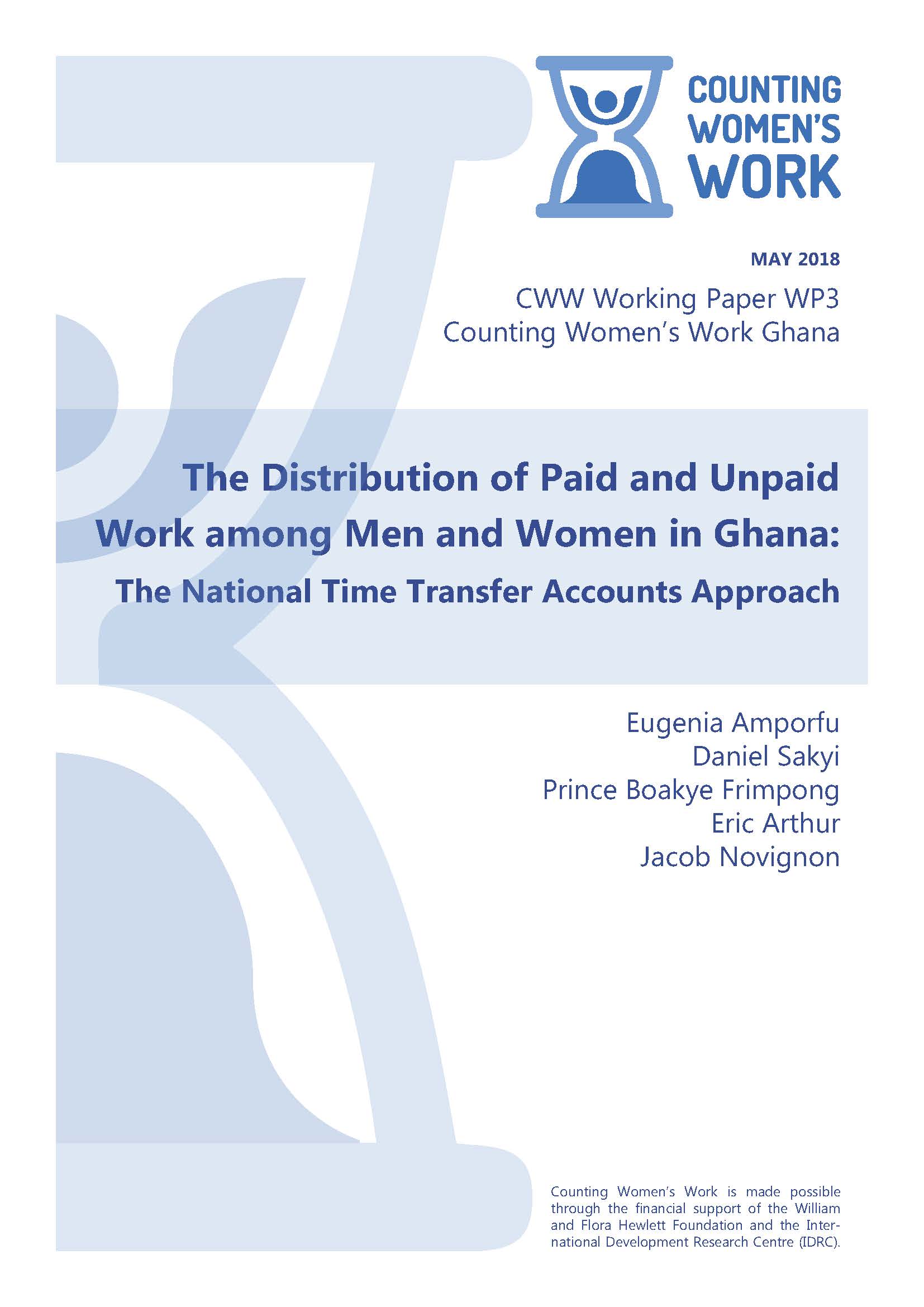Members of the Counting Women’s Work and National Transfer Accounts projects will be presenting research at a joint conference in Seoul, hosted by the Korea Institute of Health and Social Welfare (KIHASA) of Korea and the East-West Center (EWC) of the United States.
CWW Working Paper WP8 is by Morné Oosthuizen, featuring CWW results for South Africa in 2010. It is entitled Counting Women's Work in South Africa: Incorporating Unpaid Work into Estimates of the Economic Lifecycle in 2010.
CWW Working Paper WP7 is by Morné Oosthuizen and Kezia Lilenstein, and details the CWW research for Mauritius. It is entitled Counting Women's Work in Mauritius: Household Production across the Lifecycle in 2003.
CWW Working Paper WP6 is by Morné Oosthuizen, and details the CWW research for South Africa. It is entitled Counting Women's Work in South Africa: Estimates of Household Production across the Lifecycle in 2000.
CWW Working Paper WP5 is by B. Piedad Urdinola and Jorge A. Tovar, and details the CWW research for Colombia. It is entitled Time Use and Gender in Colombia.
This paper discusses the methodology used by researchers in the CWW project for constructing National Time Transfer Accounts (NTTA). The NTTAs measure the production and consumption of household production or unpaid care across the lifecycle, and the transfers across age groups implied by the patterns of these two flows.
CWW Working Paper WP3 is by Eugenia Amporfu, Daniel Sakyi, Prince Boakye Frimpong, Eric Arthur and Jacob Novignon, and details the CWW research for Ghana. It is entitled: The Distribution of Paid and Unpaid Work among Men and Women in Ghana: The National Time Transfer Accounts Approach.
CWW Working Paper WP2 is by Estela Rivero and details the CWW research for Mexico. It is entitled: Intergenerational time transfers and their contribution to Mexico's economy in 2014.
CWW Working Paper WP1 is by Pamela Jiménez-Fontana and details the CWW research for Costa Rica. It is entitled: Challenges to increase female labor force participation: Gender Inequality in Costa Rica.









